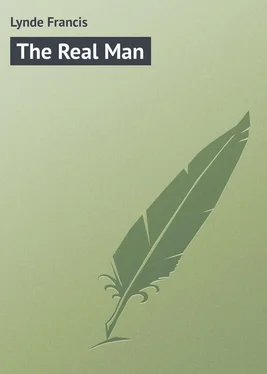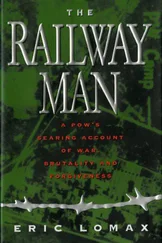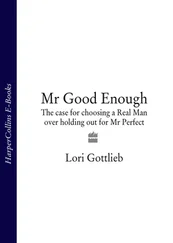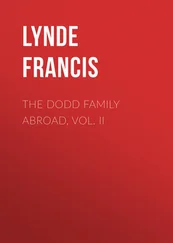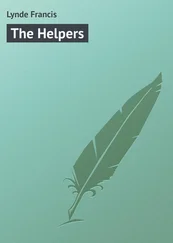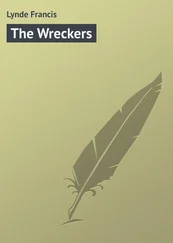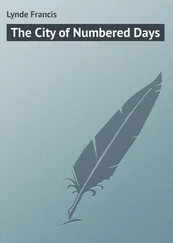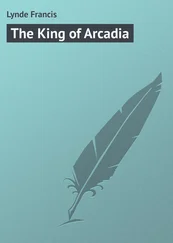Francis Lynde - The Real Man
Здесь есть возможность читать онлайн «Francis Lynde - The Real Man» — ознакомительный отрывок электронной книги совершенно бесплатно, а после прочтения отрывка купить полную версию. В некоторых случаях можно слушать аудио, скачать через торрент в формате fb2 и присутствует краткое содержание. Жанр: foreign_prose, на английском языке. Описание произведения, (предисловие) а так же отзывы посетителей доступны на портале библиотеки ЛибКат.
- Название:The Real Man
- Автор:
- Жанр:
- Год:неизвестен
- ISBN:нет данных
- Рейтинг книги:4 / 5. Голосов: 1
-
Избранное:Добавить в избранное
- Отзывы:
-
Ваша оценка:
- 80
- 1
- 2
- 3
- 4
- 5
The Real Man: краткое содержание, описание и аннотация
Предлагаем к чтению аннотацию, описание, краткое содержание или предисловие (зависит от того, что написал сам автор книги «The Real Man»). Если вы не нашли необходимую информацию о книге — напишите в комментариях, мы постараемся отыскать её.
The Real Man — читать онлайн ознакомительный отрывок
Ниже представлен текст книги, разбитый по страницам. Система сохранения места последней прочитанной страницы, позволяет с удобством читать онлайн бесплатно книгу «The Real Man», без необходимости каждый раз заново искать на чём Вы остановились. Поставьте закладку, и сможете в любой момент перейти на страницу, на которой закончили чтение.
Интервал:
Закладка:
The president turned abruptly to his desk and his hand sought the row of electric bell-pushes. With a finger resting upon the one marked "police," he said: "There isn't any room for argument, Montague. You can have one more minute in which to change your mind. If you stay, you'll begin your fight from the inside of the county jail."
Now, as we have seen, there had been nothing in John Montague Smith's well-ordered quarter century of boyhood, youth, and business manhood to tell him how to cope with the crude and savage emergency which he was confronting. But in the granted minute of respite something within him, a thing as primitive and elemental as the crisis with which it was called upon to grapple, shook itself awake. At the peremptory bidding of the newly aroused underman, he stepped quickly across the intervening space and stood under the shaded desk light within arm's reach of the man in the big swing-chair.
"You have it all cut and dried, even to the setting of the police trap, haven't you?" he gritted, hardly recognizing his own voice. "You meant to hang me first and try your own case with the directors afterward. Mr. Dunham, I know you better than you think I do: you are not only a damned crook – you are a yellow-livered coward, as well! You don't dare to press that button!"
While he was saying it, the president had half risen, and the hand which had been hovering over the bell-pushes shot suddenly under the piled papers in the corner of the desk. When it came out it was gripping the weapon which is never very far out of reach in a bank.
Good judges on the working floor of the Lawrenceville Athletic Club had said of the well-muscled young bank cashier that he did not know his own strength. It was the sight of the pistol that maddened him and put the driving force behind the smashing blow that landed upon the big man's chest. Two inches higher or lower, the blow might have been merely breath-cutting. As it was, the lifted pistol dropped from Mr. Watrous Dunham's grasp and he wilted, settling back slowly, first into his chair, and then slipping from the chair to the floor.
In a flash Smith knew what he had done. Once, one evening when he had been induced to put on the gloves with the Athletic Club's trainer, he had contrived to plant a body blow which had sent the wiry little Irishman to the mat, gasping and fighting for the breath of life. "If ever yez'll be givin' a man that heart-punch wid th' bare fisht, Misther Montygue, 'tis you f'r th' fasht thrain widout shtoppin' to buy anny ticket – it'll be murdher in th' first degree," the trainer had said, when he had breath to compass the saying.
With the unheeded warning resurgent and clamoring in his ears, Smith knelt horror-stricken beside the fallen man. On the president's heavy face and in the staring eyes there was a foolish smile, as of one mildly astonished. Smith loosened the collar around the thick neck and laid his ear upon the spot where the blow had fallen. It was as the Irish trainer had told him it would be. The big man's heart had stopped like a smashed clock.
Smith got upon his feet, turned off the electric light, and, from mere force of habit, closed and snap-locked the president's desk. The watchman had not yet returned. Smith saw the empty chair beside the vault door as he passed it on his way to the street. Since the first impulse of the unwilling or unwitting homicide is usually sharply retributive, the cashier's only thought was to go at once to police headquarters and give himself up. Then he remembered how carefully the trap had been set, and how impossible it would be for him to make any reasonable defense. As it would appear, he had first taken the bank's money to help Westfall, and afterward, when exposure had threatened, he had killed the president. No one would ever believe that the blow had been struck in self-defense.
It was at the hesitating instant that Debritt's curiously prophetic words came back to him with an emphasis that was fairly appalling: "To-morrow we may both be asking for a hand-out, and inquiring, a bit hoarsely, perhaps, if the walking is good. That is just how thin the partitions are." With one glance over his shoulder at the darkened front windows of the bank, Smith began to run, not toward the police station, but in the opposite direction – toward the railroad station.
This was at nine o'clock or, perhaps, a few minutes later. Coincident with J. Montague Smith's dash down the poorly lighted cross street, a rather weak-faced young man of the sham black-sheep type of the smaller cities was lounging in the drawing-room of an ornate timber-and-stucco mansion on Maple Street hill and saying to his hostess: "Say – I thought this was Monty's night to climb the hill, Miss Verda. By Jove, I've got it in for Monty, don't y' know. He's comin' here a lot too regular to please me."
"Mr. Smith always puts business before pleasure; haven't you found that out yet, Mr. Jibbey?" was the rather cryptic rejoinder of the Olympian beauty; and after that she talked, and made the imitation rounder talk, pointedly of other things.
III
The Hobo
For J. Montague Smith, slipping from shadow to shadow down the scantily lighted cross street and listening momently for the footfalls of pursuit, a new hour had struck. Psychology to the contrary notwithstanding, the mental mutations are not always, or of necessity, gradual. In one flaming instant the ex-cashier had been projected across the boundary lying between the commonplace and the extraordinary; but for the time he was conscious only of a great confusion, shot through with a sense of his own present inability to cope with the strangenesses.
In the projecting instant, time and the graspable realities had both been annihilated. Was it conceivable that this was the evening of the same day in which he had entertained Boswell Debritt at the Country Club? Was it remotely thinkable that, only an hour or such a matter earlier, he had been getting ready to call upon Verda Richlander? – that, at this very moment, his dress clothes were lying on the bed in his rooms, ready to be put on?
It was all prodigiously incredible; in the collapse of the universe one scene alone stood out clearly cut and vivid: the railed space in the bank, with the shaded drop-light and the open desk, and a fleshy man stretched out upon the floor with his arms flung wide and a foolish smile of mild astonishment fixed, as for all eternity, about the loosened lips and in the staring eyes.
Smith hurried on. The crowding sensations were terrifying, but they were also precious, in their way. Long-forgotten bits of brutality and tyranny on Watrous Dunham's part came up to be remembered and, in this retributive aftermath, to be triumphantly crossed off as items in an account finally settled. On the Smith side the bank cashier's forebears had been plodding farmers, but old John Montague had been the village blacksmith and a soldier – a shrewd smiter in both trades. Blood will tell. Parental implantings may have much to say to the fruit of the womb, but atavism has more. Smith's jaw came up with a snap and the metamorphosis took another forward step. He was no longer an indistinguishable unit in the ranks of the respectable and the well-behaved; he was a man fleeing for his life. What was done was done, and the next thing to do was to avert the consequences.
At the railroad station a few early comers for the westbound passenger-train due at ten o'clock were already gathering, and at the bidding of a certain new and militant craftiness Smith avoided the lighted waiting-rooms as if they held the pestilence. Nor was it safe to pass beyond the building. The May night was fine, and there were strollers on the train platform. Smith took no risks. A string of box cars had been pushed up from the freight unloading platforms, and in the shadow of the cars he worked his way westward to the yard where a night switching crew was making up a train.
Читать дальшеИнтервал:
Закладка:
Похожие книги на «The Real Man»
Представляем Вашему вниманию похожие книги на «The Real Man» списком для выбора. Мы отобрали схожую по названию и смыслу литературу в надежде предоставить читателям больше вариантов отыскать новые, интересные, ещё непрочитанные произведения.
Обсуждение, отзывы о книге «The Real Man» и просто собственные мнения читателей. Оставьте ваши комментарии, напишите, что Вы думаете о произведении, его смысле или главных героях. Укажите что конкретно понравилось, а что нет, и почему Вы так считаете.
